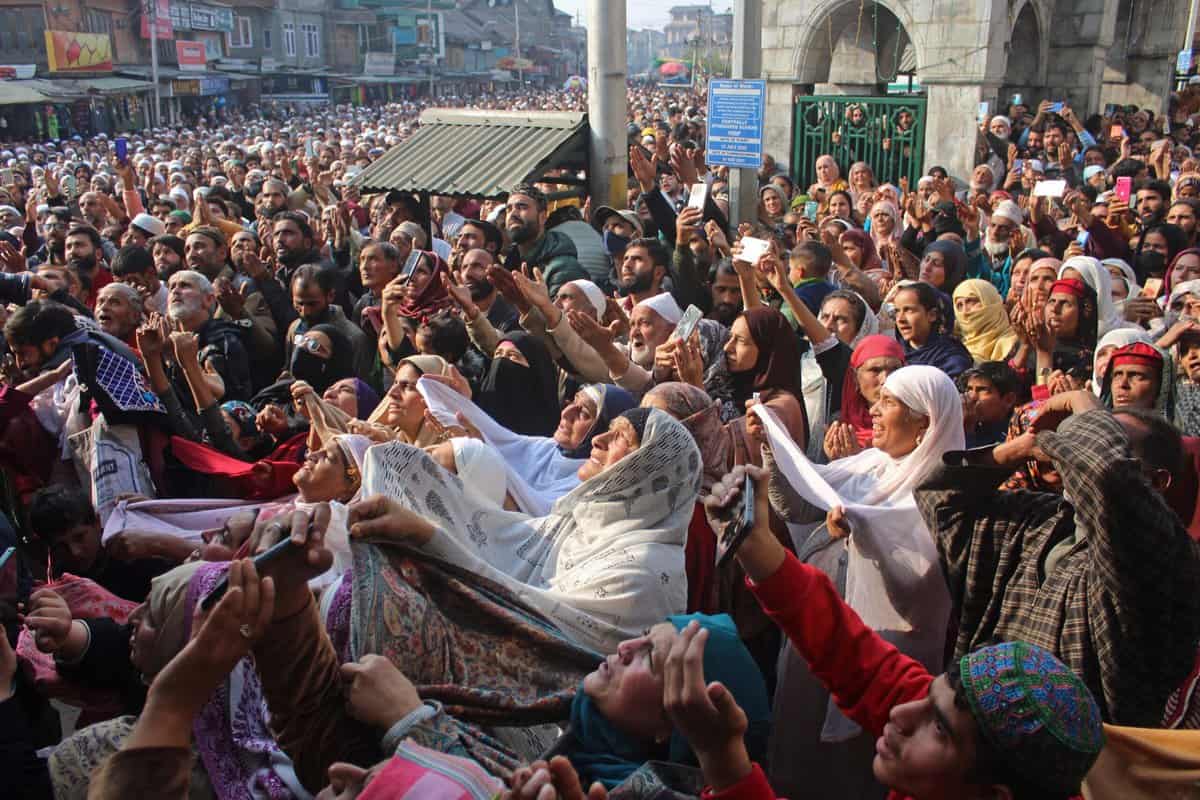
“What have I to do with Pakistan”, snapped Syed Mohammad Altaf Bukhari president of the Jammu and Kashmir Apni Party at a reporter who wanted his reaction on the recent elections in the neighboring country that have thrown a deeply fractured mandate. He told the questioner,” India is my country, ask me about my nation.”
In any other situation or time in Kashmir politics, this kind of reaction would have seemed odd as the political landscape of the Valley was intertwined with Pakistani politics. It used to be analyzed who would rule Pakistan and the impact it would have on Jammu and Kashmir considered a contested territory between India and Pakistan. But not now.
That’s how the pronounced declaration by Altaf Bukhari, who is seeking to set a tone of the newer realities that no one else except Delhi can address all the issues concerning Jammu and Kashmir. Everything else is an illusion. This also is reflection of popular and majority view in Kashmir.
Even die-hard advocate of dialogue with Pakistan to resolve Kashmir issue, PDP president Mehbooba Mufti, has sensed troubles in Pakistan of high magnitude. She went on to see parallels between the 1971 loss of eastern Pakistan and the current situation in Pakistan after the February 18 polls. She posted on X, formerly Twitter,” Today’s situation in Pakistan shares a worrying parallel with the period that led to East Pakistan’s secession, given the resentment in Balochistan and Khyber Pakhtunkhwa against the establishment for exploiting their resources.”
It makes two realities clear; Pakistan has sunk in its own quagmire after the elections which are better known for the rigging than its fairness, and second its swan song on Kashmir or over seven decades is also lost. Kashmiris have seen that Pakistan is incapable of governing itself, and keep all its parts together. The mandate that has come about has shown that the establishment, the army, and the greedy and pliable political leadership, are interested in their welfare and all their claims of healing touch are nothing more than empty rhetoric.
It has brought a dawn of new reality for Kashmiris now than any other time in the post-independence history, that Pakistan is a lost case. A country that has learnt no lessons after having lost one full-fledged part of it in 1971 has not been able to generate a cohesive narrative to bind the nation together, cannot be trusted for anything. The people in Pakistan, whether Balochistan, or Khyber-Pakhtunkhwa cannot pin their hopes and trust in the establishment, has no right to talk about others. It’s all fake, Kashmiris have seen this game of Pakistan faking its narratives for them.
More significantly, there is a difference between the situation when Pakistan went through last elections in 2018, Kashmir was witnessing strong waves of stone pelting and militants had their own territory that they chose to strike and disrupt lives. They were in a state of captivity. That hostage-like situation has ended now. A sense of normalcy that has dawned in the valley with full-time stoppage of stone throwing crowds, and bullet raining militants, and separatists’ general strike calls, has encouraged them to consolidate normalcy. Looking at their own situation, though their own tryst with the democracy is incomplete an Assembly polls have not been held even after the Central rule was imposed in June 2018, and subsequently the House was dissolved on November 21, 2018, but they are enjoying the freedom to live which was troubled by the dots of disruption. They have been promised Assembly elections by the Supreme Court of India and they hope that these directions are honoured in letter and spirit. Pakistan is increasingly becoming a distant land for them despite being in the immediate neighborhood.
